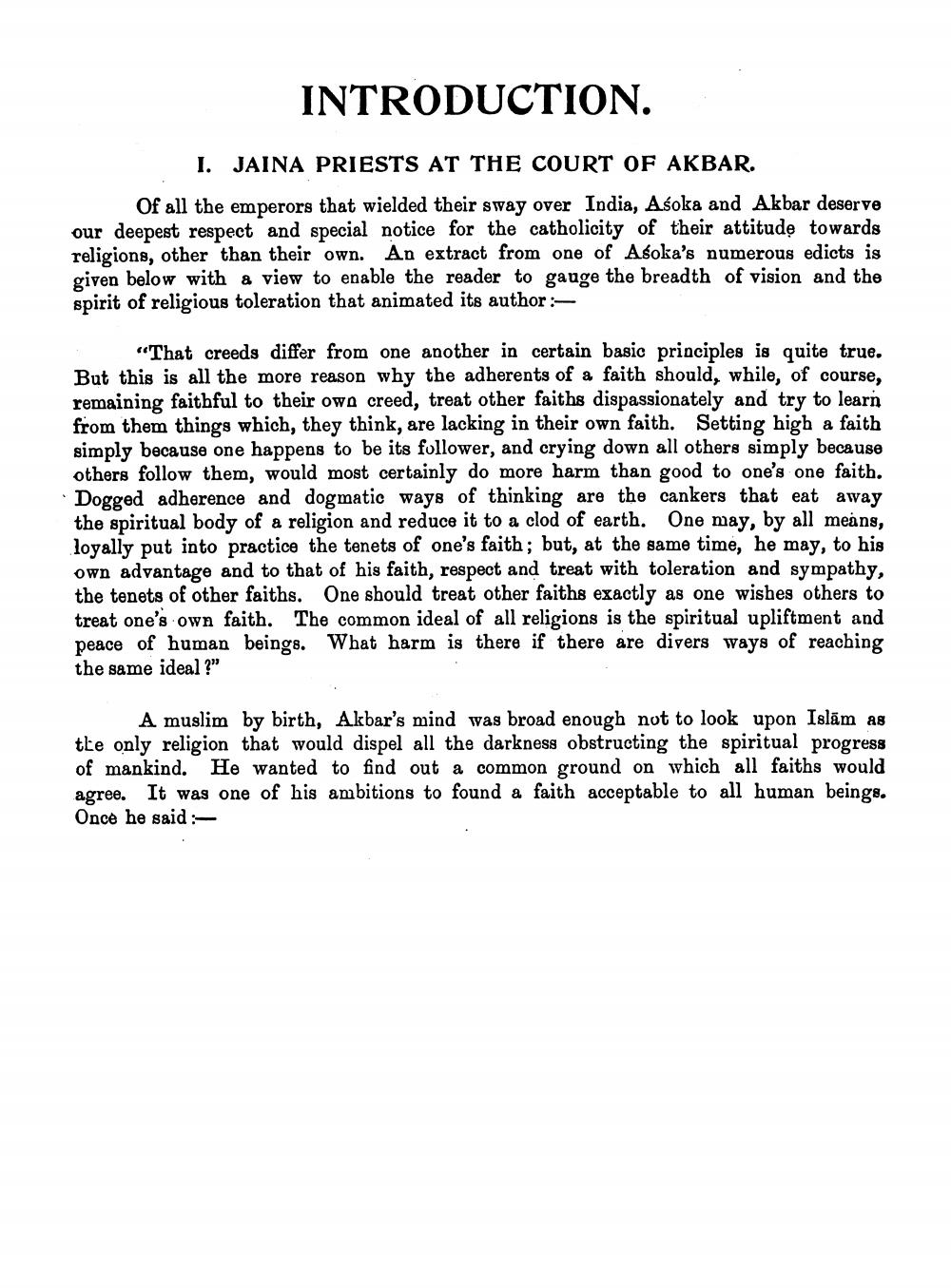________________
INTRODUCTION.
I. JAINA PRIESTS AT THE COURT OF AKBAR.
Of all the emperors that wielded their sway over India, Asoka and Akbar deserve our deepest respect and special notice for the catholicity of their attitude towards religions, other than their own. An extract from one of Asoka's numerous edicts is given below with a view to enable the reader to gauge the breadth of vision and the spirit of religious toleration that animated its author :
“That creeds differ from one another in certain basic principles is quite true. But this is all the more reason why the adherents of a faith should, while, of course, remaining faithful to their own creed, treat other faiths dispassionately and try to learn from them things which, they think, are lacking in their own faith. Setting high a faith simply because one happens to be its follower, and crying down all others simply because
others follow them, would most certainly do more harm than good to one's one faith. · Dogged adherence and dogmatic ways of thinking are the cankers that eat away the spiritual body of a religion and reduce it to a clod of earth. One may, by all means, loyally put into practice the tenets of one's faith; but, at the same time, he may, to his own advantage and to that of his faith, respect and treat with toleration and sympathy, the tenets of other faiths. One should treat other faiths exactly as one wishes others to treat one's own faith. The common ideal of all religions is the spiritual upliftment and peace of human beings. What harm is there if there are divers ways of reaching the same ideal ?"
A muslim by birth, Akbar's mind was broad enough not to look upon Islām as the only religion that would dispel all the darkness obstructing the spiritual progress of mankind. He wanted to find out a common ground on which all faiths would agree. It was one of his ambitions to found a faith acceptable to all human beings. Once he said:




